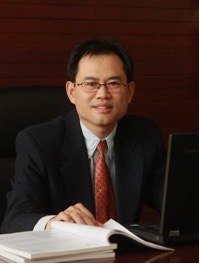A Screening Strategy for IN718
Combining High-throughput Forging Experiment and Machine Learning
Zhiron
Sun, Kaikun Wang*
University of Science and Technology Beijing,
Beijing, 100083
ABSTRACT: Nickel based
superalloy IN718 is widely used in power station, pressure vessels, and other
high-temperature structural applications. In this study, we propose a screen
strategy of processing conditions based on high-throughput experiment
equipment, numerical simulation, and machine learning to obtain the optimal
process condition for IN718. A high-throughput experiment equipment for hot
forging was designed, with which up to 30 samples of different processing
conditions could be forged at a stroke. Numerical simulation of the forging process
on the equipment was studied. Four factors of forging speed, forging
displacement, friction factor and forging temperature were considered.
Subsequently, A database of 625 examples with four features (forging speed,
forging displacement, friction factor, and forging temperature) and two target
properties (average grain
size and maximum principal stress) were obtained. The database was splitted
into 80% training data and 20% validation data. Several machine learning
algorithms in skit-learn, a Python framework for data mining and data analysis,
were compared based on training data. A BP NN model with minimum RMSE value was
selected to analyze the influence of different processing conditions on average
grain size and maximum principal size repectively. The analyzing results were
consistent with the domain knowledge. A screen algorithm based on Python was
designed to screen the optimal processing conditions comprehensively
considering the average grain size and the maximum principal stress. The
optimal conditions for different forging displacements were achieved. Compared
with the traditional high-cost and time-consuming trial-and-error methods, the
method used in this paper to optimize the processing technology has great
advantages. This method could also be applied to pre-screening for material design
and process optimization.
Keywords: Hot forging; Numerical simulation; Machine learning; High-throughput experiment

Prof.Dr-Ing Kaikun Wang: He works in School of Materials Science and Engineering at University of Science and Technology Beijing. He did his PhD work in Institute of Metal Forming at RWTH-Aachen University and his postdoc work at Tsinghua University. His main research interests include preparation and short-term forming technology of lightweight alloys and composites, superalloy forming technology, simulation of metal plastic forming process, high-throughput forming, etc.